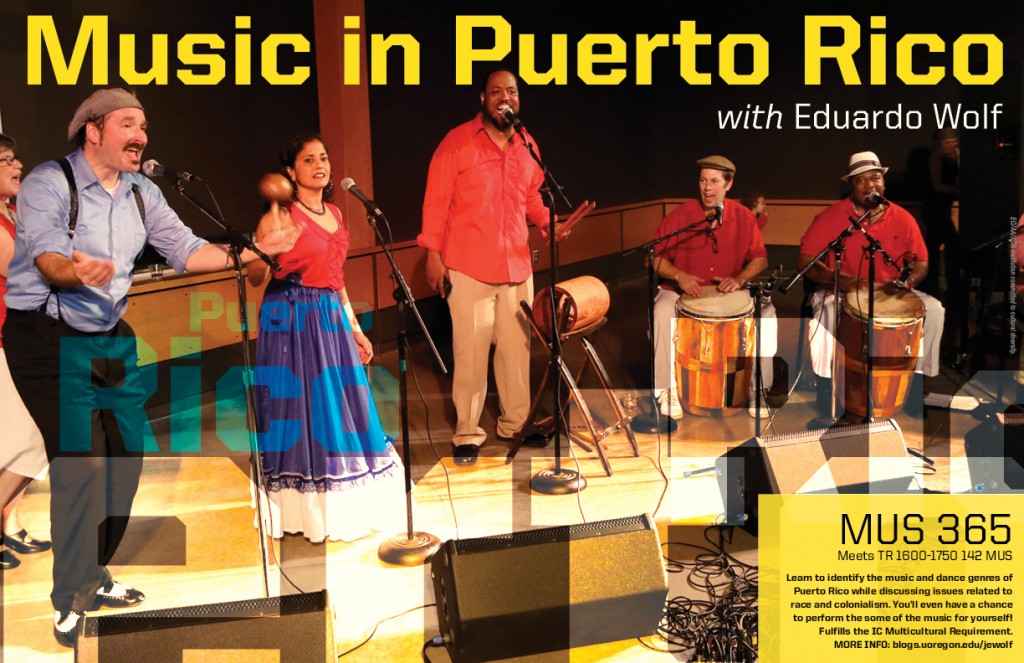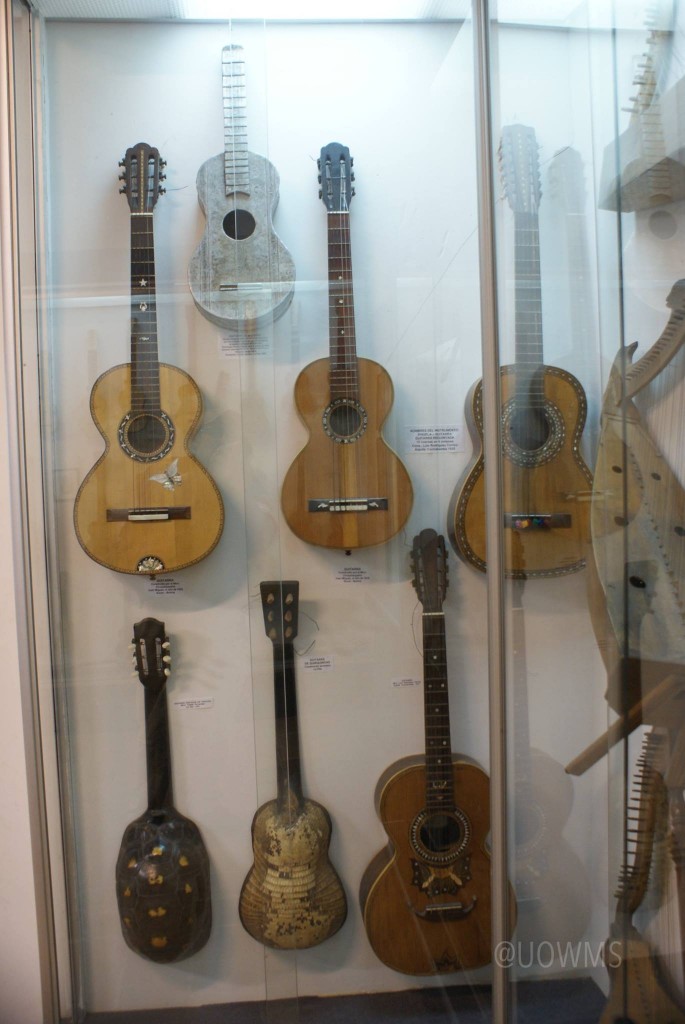MUS 365: Regional Topics in Ethnomusicology [TOP: MUSIC IN PUERTO RICO]
TR 4:00-5:50 PM Room: 142 Frohnmayer Music Building

This version of the course focuses primarily on the island of Puerto Rico. The classic trope about its music is that it resulted of the mixing of three cultures: African, European, and Native American. This orientation, however, asks us to think critically about the relationship between our ideas of music and race. We will explore the ways in which genres are described in terms of racial stereotypes as well as attempt to understand how history both supports and undermines these culturally engrained notions. Because of Puerto Rico’s colonial relationship with the United States, we will also examine how people in the United States, including those of Puerto Rican descent, see Puerto Rican music, which often reflects the politics of Puerto Rican sovereignty. In addition to reading, discussion, and listening, students will also work to attain basic skills for performing several of the featured genres. This course fulfills the IC (International Cultures) Multicultural Requirement.
Reading or listening materials will be made available on the course Canvas site and include authors like Frances Aparicio, Peter Manuel and Wayne Marshall.
MUS 452/552: Musical Instruments of the World
TR 10:00-11:50 AM Room: 167 Frohnmayer Music Building

Musical instruments are tools that humans have created to shape their sound environments. They reflect the cultural values that communities of humans share. In this class, we will examine these tools, seeking to understand how they work: mechanically, aesthetically, and socially. We will also explore how and why scholars have studied musical instruments, even taking the time to build some. Questions include: why have some musical instruments become icons of a nation? How should we classify the vast number of instruments in the world? What does it mean for instruments to circulate around the world? Students will have the opportunity to research an instrument of their choice more thoroughly. This course fulfills the IC (International Cultures) Multicultural Requirement.
Reading or listening materials will be made available on the course Canvas site and may include authors like Max Peter Baumann, John Blacking, Cornelia Fales, and Mark Katz.